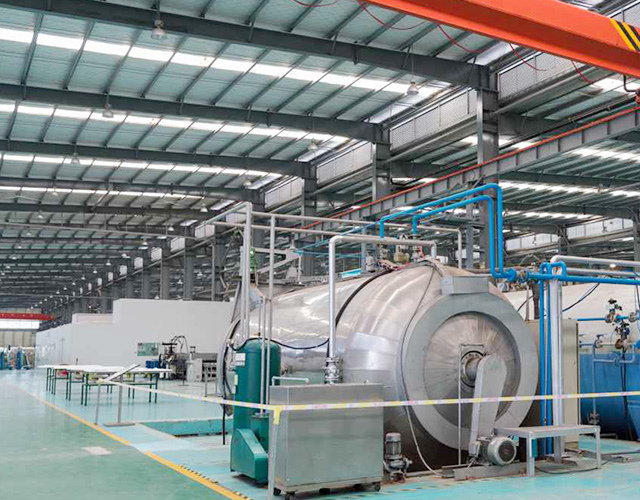An important step! Scientists use artificial intelligence to calculate local stress in complex materials, 8300 times faster than the standard
- Categories:Company News
- Author:
- Origin:
- Time of issue:2021-01-21
- Views:0
(Summary description)For more than 300 years, scientists have known how to transform basic physics into mathematical formulas, and due to technological progress, a large number of numerical tools and methods have been developed to calculate and solve complex equations and predict the correct answers to various mechanical problems.
An important step! Scientists use artificial intelligence to calculate local stress in complex materials, 8300 times faster than the standard
(Summary description)For more than 300 years, scientists have known how to transform basic physics into mathematical formulas, and due to technological progress, a large number of numerical tools and methods have been developed to calculate and solve complex equations and predict the correct answers to various mechanical problems.
- Categories:Company News
- Author:
- Origin:
- Time of issue:2021-01-21
- Views:0
Predicting the mechanical behavior of all systems around us, from vehicles and spacecraft to bridges and skyscrapers, is essential for safety and design.
For more than 300 years, scientists have known how to transform basic physics into mathematical formulas, and due to technological progress, a large number of numerical tools and methods have been developed to calculate and solve complex equations and predict the correct answers to various mechanical problems.
However, solving these equations directly takes time and becomes more difficult. The more complex the system, forcing researchers to use approximations instead of all the variables of the system.
Now, a big step has been taken towards accurate and rapid prediction of complex material mechanics. Scientists at Max-Planck-Institut für Eisenforschung (MPIE) and DeepMetis, an artificial intelligence company in Berlin, use deep neural networks to calculate local stresses in complex materials, which is 8300 times faster than standard solvers.
They published their latest findings in the journal npj Computational Materials ("Teaching solid mechanics to artificial intelligence – a fast solver for heterogeneous materials").
Our latest work shows how all these calculations can be replaced by machine learning. MPIE principal, Dr. Jaber Rezaei Mianroodi, explained that instead of solving equations directly, we developed a neural network that can learn physics and look at large amounts of data to predict the correct answers to complex and nonlinear mechanical problems.
After training with the correct pre-calculated physical response, the neural network is able to predict solutions to problems and configurations that have never been encountered during training. Like an experienced engineer who has intuition for complex mechanical problems and can make educated guesses within seconds, the network seems to be able to learn basic physics and predict solutions in microseconds.
Despite the nonlinearity or complexity of the system, the prediction speed of the network is orders of magnitude faster than traditional solvers. Unlike traditional solvers that require iterative (trial and error) methods to solve nonlinear problems, trained machine learning solvers are not iterative.
This method can replace traditional solvers and enhance our understanding of multi-scale and multi-physics problems. The computational time consumed by our solver has been reduced by several orders of magnitude, opening up new possibilities for advanced material models. Combining our machine learning technology will help us make the model more predictive and realistic, because it can optimize more complex systems. Said Dr. Nima Siboni, a DeepMetis artificial intelligence expert and MPIE alumnus.
Researchers will now extend the flexibility and scope of machine learning methods to make more accurate predictions. They also plan to study the use of traditional methods to solve other important equations that are time-consuming.
Scan the QR code to read on your phone
Latest news
SAUNDERS
WRITE A MESSAGE TO US
Singyes New Materials Technology Co.,Ltd.
Service Hotline: 400-602-3918
Address: No. 9 Jinzhu Road, Science and Technology Innovation Coast, High-tech Zone, Zhuhai City, Guangdong Province
If you want to visit Xingye New Materials, you have the following transportation options:
By bus: K1 Road, get off at Rossini Station and go to Chuangxin 9 Road
Self-driving: Refer to the map signs to drive north of Gangwan Avenue and turn right to Jinfeng North Road, turn left at red light and turn left at Keji 9th Road and go straight to Chuangxin 9th Road and turn right
Copyright © Singyes New Materials Technology Co.,Ltd. 粤ICP备14010031号



 400-602-3918
400-602-3918

 Message
Message 